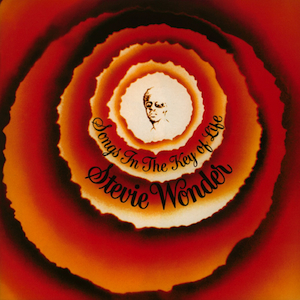
Songs in the Key of Life is the eighteenth studio album by American singer, songwriter and musician Stevie Wonder. A double album, it was released on September 28, 1976, by Tamla Records, a division of Motown. It was recorded primarily at Crystal Sound studio in Hollywood, with some sessions recorded at the Record Plant in Hollywood, the Record Plant in Sausalito, and The Hit Factory in New York City; final mixing was conducted at Crystal Sound. The album has been regarded by music journalists as the culmination of Wonder's "classic period" of recording.
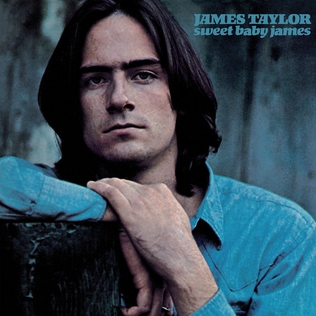
Sweet Baby James is the second studio album by American singer-songwriter James Taylor, released on February 1, 1970, by Warner Bros. Records.
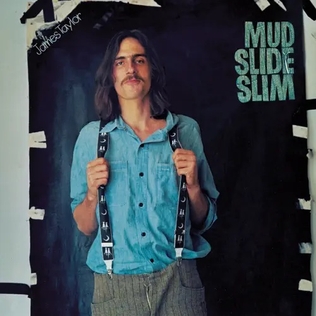
Mud Slide Slim and the Blue Horizon is the third studio album by American singer-songwriter James Taylor, released in April 1971 by Warner Bros. Records. The album was recorded between early January and late February of the same year.

One Man Dog is the fourth studio album by singer-songwriter James Taylor. Released on November 1, 1972, it features the hit "Don't Let Me Be Lonely Tonight", which peaked at number 14 on the Billboard charts on January 13, 1973. The follow-up single, "One Man Parade", also charted but less successfully, peaking at number 67 in the US and reaching number 55 on the Canadian Adult Contemporary chart. The basic tracks were primarily recorded in Taylor's home studio.

Flag is the ninth studio album by American singer-songwriter James Taylor released on May 1, 1979. The album included songs from Taylor's music score to Stephen Schwartz's Broadway musical, Working, based on the book by Studs Terkel.

Rock of the Westies is the tenth studio album by English musician Elton John, released on 24 October 1975. The title is a pun on the phrase "West of the Rockies", the album having been recorded at Caribou Ranch in the Rocky Mountains of Colorado.
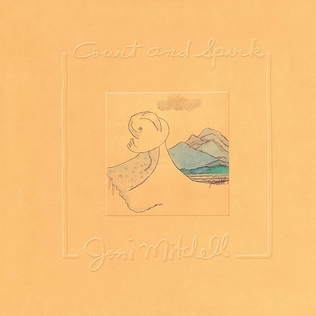
Court and Spark is the sixth studio album by Canadian singer-songwriter Joni Mitchell. Released by A&M in January 1974, it infuses the folk rock style of her previous albums with jazz elements.
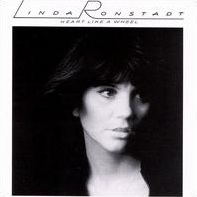
Heart Like a Wheel is the fifth solo studio album by Linda Ronstadt, released in November 1974. It was Ronstadt's last album to be released by Capitol Records. At the time of its recording, Ronstadt had already moved to Asylum Records and released her first album there; due to contractual obligations, though, Heart Like a Wheel was released by Capitol.

Raise! is the eleventh studio album by the American band Earth, Wind & Fire, released on November 14, 1981, by ARC/Columbia Records. The album spent 11 weeks atop the Billboard Top R&B albums chart and peaked at No. 5 on the Billboard 200 chart. Raise! has been certified Platinum in the US by the RIAA, Gold in the UK by the BPI and Gold in Canada by Music Canada.

Robbie Robertson is the solo debut album by Canadian rock musician Robbie Robertson, released in 1987. Though Robertson had been a professional musician since the late 1950s, notably a founder of and primary songwriter for The Band, this was his first solo album. Robbie Robertson won the Juno Award for "Album of the Year", and producers Daniel Lanois and Robertson won the "Producer of the Year" Juno award, both in 1989; there were no Juno Awards in 1988.

"Handy Man" is a song written by singer Jimmy Jones and songwriter Otis Blackwell. Recordings by Del Shannon and also The Sparks Of Rhythm list Charles Merenstein as a co-writer, as does BMI. The Sparks Of Rhythm version on the Apollo 541 single version released in 1959 credits Andrew Barksdale and Merenstein as writers omitting Jimmy Jones. The song is noted for Jones singing "Come-a, come-a come-a come-a, come come-a, yeah" lyrics, which are heard at the beginning as well as in the coda of the song, before the song's fade.

How Dare You! is the fourth album by British band 10cc. Released in 1976, it included UK hit singles "I'm Mandy Fly Me" and "Art for Art's Sake". The album was the band's third to have cover artwork by the Hipgnosis creative team.
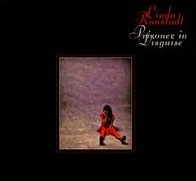
Prisoner In Disguise (1975) is Linda Ronstadt's sixth solo LP release and her second for the label Asylum Records. It followed Ronstadt's multi-platinum breakthrough album, Heart Like a Wheel, which became her first number one album on the US Billboard 200 album chart in early 1975.

Get Closer is the eleventh studio album by singer Linda Ronstadt, released in 1982.

Hasten Down the Wind is the seventh studio album by Linda Ronstadt. Released in 1976, it became her third straight million-selling album. Ronstadt was the first female artist to accomplish this feat. The album earned her a Grammy Award for Best Pop Vocal Performance, Female in 1977, her second of 13 Grammys. It represented a slight departure from 1974's Heart Like a Wheel and 1975's Prisoner in Disguise in that she chose to showcase new songwriters over the traditional country rock sound she had been producing up to that point. A more serious and poignant album than its predecessors, it won critical acclaim.
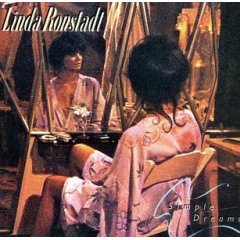
Simple Dreams is the eighth studio album by the American singer Linda Ronstadt, released in 1977 by Asylum Records. It includes several of her best-known songs, including her cover of the Rolling Stones song "Tumbling Dice" and her version of the Roy Orbison song "Blue Bayou", which earned her a Grammy nomination for Record of the Year. The album also contains covers of the Buddy Holly song "It's So Easy!" and the Warren Zevon songs "Poor Poor Pitiful Me" and "Carmelita".

Greatest Hits is Linda Ronstadt's first major compilation album, released at the end of 1976 for the holiday shopping season. It includes material from both her Capitol Records and Asylum Records output, and goes back to 1967 for The Stone Poneys' hit "Different Drum."

Mad Love is the tenth studio album by singer Linda Ronstadt, released in 1980. It debuted at #5 on the Billboard album chart, a record at the time and a first for any female artist, and quickly became her seventh consecutive album to sell over one million copies. It was certified platinum and nominated for a Grammy.

"Your Smiling Face" is a song by singer James Taylor. First available on the album JT, and released as the album's sophomore single in September 1977, "Your Smiling Face" peaked at number 11 in Cash Box magazine and at 20 on the Billboard Hot 100 near year's end. It reached number 11 on the RPM Top Singles chart in Canada. On Billboard's Adult Contemporary chart, it reached number 6.

"Bartender's Blues" is a song written by James Taylor and first released on his 1977 album JT. It was also released as the B-side of the lead single from JT, "Handy Man". It has since been covered by George Jones and other artists.




















